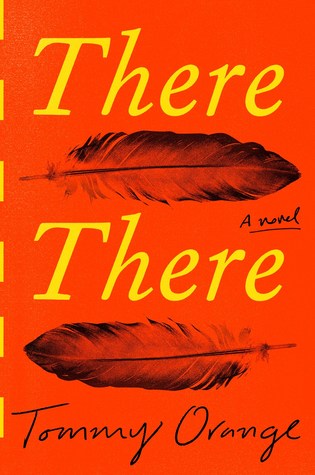This compelling story offers a new, often untold perspective on the Native American experience. It's title comes from a famous Gertrude Stein quote in which she proclaimed, of her hometown of Oakland, "There is no there there." Though often interpreted as a derision of San Francisco's less fortunate neighbor, in fact, this author points out, Stein was really lamenting the passage of time, pointing out that the Oakland she once knew no longer existed. Either way, it seems as though the quote plays a central role in the story Orange is trying to tell, that of Native Americans who live, often unseen and unconsidered, in America's cities. Sherman Alexie and Louise Erdrich have written extensively about life on rural reservations; the same is true of American news publications. As a result, perhaps, popular consciousness places Native American culture in these locales. Orange seems to be trying to expand the idea of where Native Americans live and who they are by drawing attention to what it is like to navigate this identity in the urban environment. He seems to be trying to say that there is a there there. Then again, if this is the case, I'm not quite sure what to make of the ending.
Wednesday, August 29, 2018
The Book Thief
The Book Thief by Markus Zusak
Well here's a book I couldn't put down. This is a story of the Holocaust told from a perspective I hadn't quite considered: Death. I hope that doesn't give too much away. It's an interesting point of view that underscores the way death permeated Nazi Germany in the 1930s and 1940s. It was a time of death for lives, of course, but also of livelihoods, literature, friendships, art, freedom, and, for many, hope. This book tells the story of how one young adolescent refused to allow her hope to die during this time through a hard-fought relationship with books. It affirms the power of literature as well as the resilience and persistence of young people in the face of the worst of times.
I appreciated this book on a number of levels. I loved the short chapters, each one a tale in and of itself, that propelled the story forward. I also liked that the book wasn't just driven by plot; it's full of reflection about life, death, and everything that happens in between. It's a heavy topic, to be sure, but definitely worth a read.
Well here's a book I couldn't put down. This is a story of the Holocaust told from a perspective I hadn't quite considered: Death. I hope that doesn't give too much away. It's an interesting point of view that underscores the way death permeated Nazi Germany in the 1930s and 1940s. It was a time of death for lives, of course, but also of livelihoods, literature, friendships, art, freedom, and, for many, hope. This book tells the story of how one young adolescent refused to allow her hope to die during this time through a hard-fought relationship with books. It affirms the power of literature as well as the resilience and persistence of young people in the face of the worst of times.
I appreciated this book on a number of levels. I loved the short chapters, each one a tale in and of itself, that propelled the story forward. I also liked that the book wasn't just driven by plot; it's full of reflection about life, death, and everything that happens in between. It's a heavy topic, to be sure, but definitely worth a read.
Subscribe to:
Comments (Atom)
